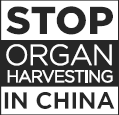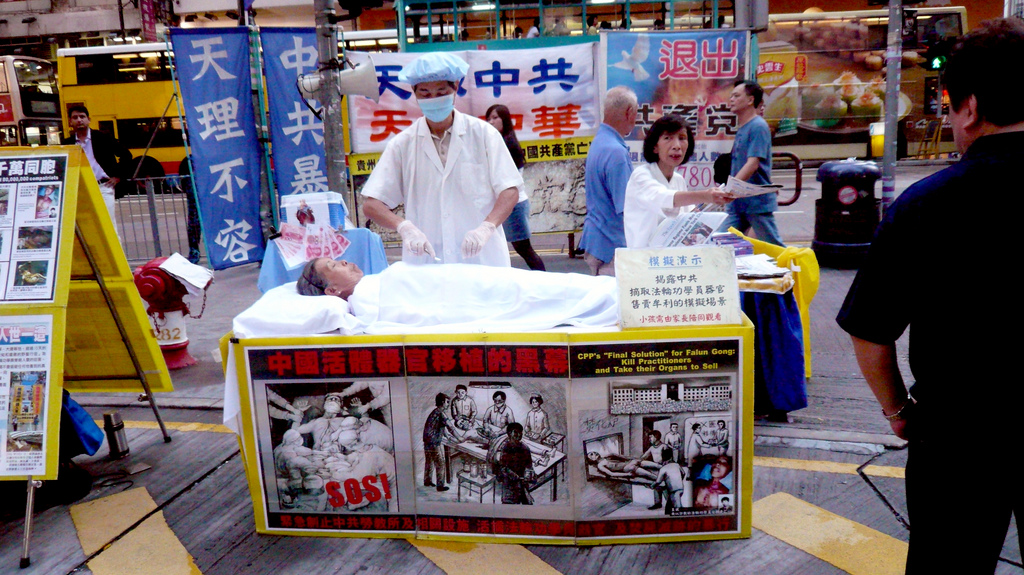By Arthur Caplan, Torsten Trey, Michael Shapiro, and Maria Fiatarone Singh
June 13, 2017
The Pontifical Academy of Sciences (PAS) held a summit in Rome in February 2017 on Organ Trafficking and Tourism. The Vatican convened the summit “to combat these crimes against humanity through comprehensive efforts that involve all stakeholders around the world.” But it was that seemingly innocuous goal—specifically when it referred to “all stakeholders”—that proved especially controversial with the inclusion of a delegation from the Peoples Republic of China (PRC). China has, for decades, been a principal agent in unethical organ procurement and organ trafficking. The decision to invite the Chinese delegates to the summit may have harmed crucial efforts to end the unethical procurement practices still occurring in China.
China, by its own admission, has long addressed the demand for transplantable organs by sourcing them from executed prisoners. In a 2013 interview with the Australian ABC, then vice-Minister of Health Huang Jiefu asked why the West would “object” to the harvesting of organs from executed prisoners. After criticism of the practice, in 2015 Huang described death-row prisoners as citizens with the “right” to donate organs. His definition perhaps originated from Chinese regulations dating from 1984 permitting the use of organs from executed prisoners; though found nowhere else in international norms, this permission has yet to be rescinded.
Huang’s appearance at the Vatican’s summit as a reformer claiming to reject the decades-long, inhumane practice of killing for organs stands in stark contrast to his own checkered past. Under his tenure, transplant numbers in China soared dramatically despite the lack of any legislated, recognizable system for obtaining organs from deceased individuals. In 2005, after years of denial, he publicly admitted China’s organ procurement stems almost entirely from executed prisoners, a practice widely condemned by international non-governmental organizations and governments. Unlike many other countries performing transplants, China did not have even a rudimentary cadaver organ donation infrastructure; the first pilot organ donation project only began in 2010.
Prisoners for execution were and remain plentiful. They include political and religious dissidents as well as many petty and non-violent criminals. Executions have been timed for the convenience of transplant teams and transplant tourists with wait times of merely two to four weeks, in contrast to years in some countries.
In 2014, Francis Delmonico, MD, writing on behalf of The Transplantation Society (TTS) and the Declaration of Istanbul Custodian Group (DICG), wrote an open letter to the President of the PRC decrying the continuing use of organs from executed prisoners and the recruitment of transplant tourists to come to China for transplantation. In response, Huang and colleagues pointed out that “cooperation within international academic circles can only carry on through scrupulously abiding by mutual respect for each other’s sovereignty and non-interference with each other’s internal affairs,” falsely suggesting that respect for sovereignty somehow trumps international ethical standards. Executing people “on demand” to quickly supply organs to waiting surgeons and their patients is recognized as an indefensible crime against humanity demanding vocal condemnation, not respect and non-interference.
Current statements from China about the use of prisoners continue to be ambiguous at best, and intentionally misleading at worst. In December 2014, Huang announced that China would completely cease the use of organs from executed prisoners after 2015; both the medical and lay press hailed this announcement. Subsequent statements from Huang, however, maintain that prisoners may consent to organ donation following execution. They are thus, incredibly, re-classified as voluntary deceased donors in the manner of the U.S. and other nations where persons or family members donate after naturally occurring deaths, not executions.
According to all international guidelines, prisoners are unethical sources for organ transplant. They are in a coercive environment and thus are not able to consent to donation. Describing executed prisoners as “volunteer donors” is ethically pernicious.
Many of those being murdered are prisoners of conscience. Falun Gong prisoners (those arrested for participating in a persecuted Chinese spiritual practice) have been subjected to systematic, forced medical exams and blood tests in detention camps. Coincident with the aggressive campaign of Falun Gong oppression and imprisonment, transplant numbers in China appear to have rapidly increased.
The international transplant community has long insisted on transparency to prevent organ trafficking and the abuse of donors. All countries are expected to submit their transplant data, including donor information, to an international database. The World Health Organization-Spanish Transplant Organization (WHO-ONT) is the repository for such data. China has released multiple sets of conflicting and dubious transplant numbers, including during and following the Vatican PAS Summit. Such non-compliance with international standards belies the persistent Chinese claims of openness and ethical transplantation.
The international transplant community has used both a carrot and a stick in an attempt at convincing China to accept international norms for organ donation. TTS has long stipulated that no member obtain or transplant organs from executed prisoners. In 2007, the group banned presentations at meetings including patient data from executed prisoners. Starting in 2011, several transplant and general medical journals called for a ban on transplant publications from China unless the authors could certify that no organs from executed prisoners were used in their study.
Some, however, argue for engagement to shift heinous behavior. For instance, TTS inexplicably awarded Huang Jiefu their Presidential Medal in 2008, despite his involvement with a donor transplant system based on executions. Moreover, the TTS recently held their biannual International Congress in Hong Kong. Those supporting engagement with China as the best approach to supporting Chinese transplant progressives felt that holding the meeting there would support change. Others, noting lack of proof that China had completely ended the use of executed prisoners, felt this was a premature endorsement of the Chinese transplant system. The invitation for China to attend the PAS Summit can be seen from the same two perspectives. Is it proper to invite the Chinese delegation to proclaim, without evidence, that organ procurement in China is ethical? The sheer volume of transplant activity makes this claim difficult to believe, especially considering that China still lacks a potent cadaver system and a law recognizing death by neurological criteria (i.e., brain death), which is key to procuring cadaver organs.
This dilemma is analogous to the question of isolation vs. engagement with China following the Tiananmen Square massacre. Two statements from that time are relevant to the current discussion. The first, from then-American President George H.W. Bush: “It is wrong to isolate China if we hope to influence China.” The second, and more worrisome, from Chinese Communist Party General Secretary Jiang Zemin: “The concepts of human rights, democracy and freedom are all relative.” The international community must bring political and economic pressure on China to immediately cease the barbaric, inhumane, and illegal practice of killing to obtain organs for transplantation. China is a sophisticated nation with a keen desire to be a world leader in science, medicine and technology. It is likely that China would heed the world’s insisting that this practice completely end as a condition of full involvement with the international community.
Source:http://journal.georgetown.edu/engagement-or-isolation-organ-trafficking-persists-in-china/

